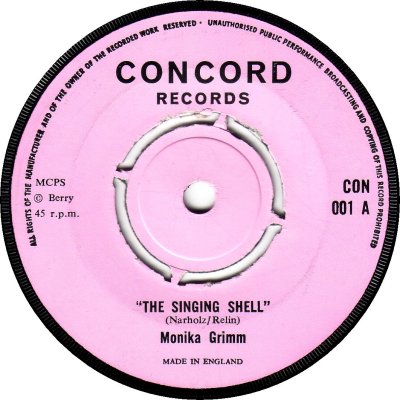
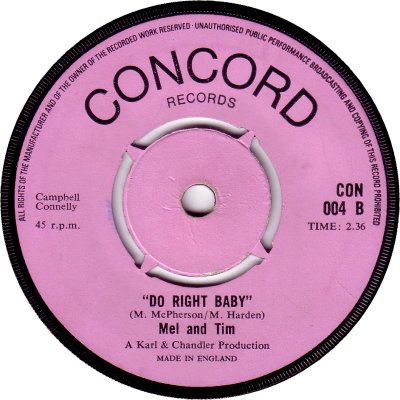
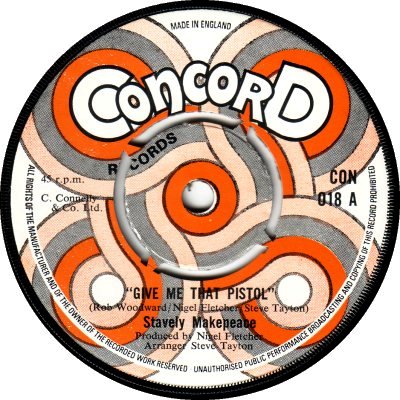
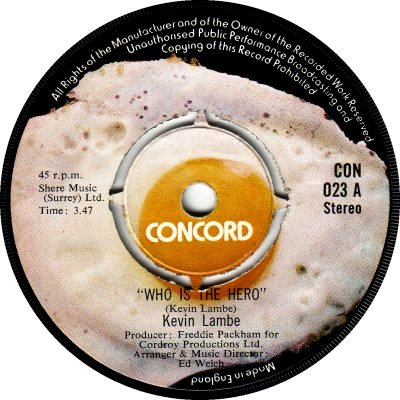
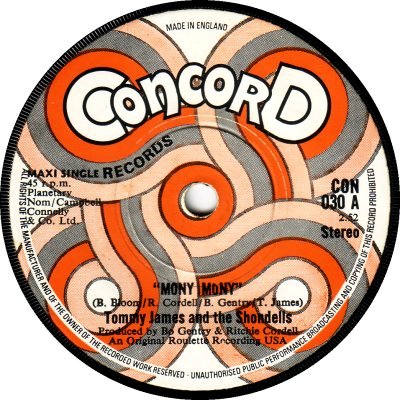
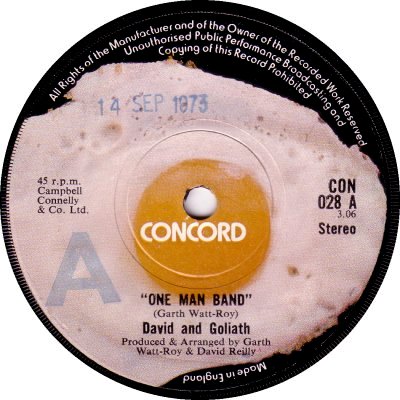
The second record label of music publishing firm Campbell Connelly - the first, Camp, had been sold to producer Steve Rowland and financier Ronnie Oppenheimer before Concord came into being. According to 'Record Retailer' of the 2nd of July 1969 Concord was initially planned to be Campbell Connelly's record production arm rather than a label, and the intention was to lease material out, not to issue it; its first signings were String Drive Thing, Anna Destil, Elaine Hope and Steve Tracy. Seven weeks or so later, however, the aim had changed, and 'RR' reported that a label launch was being planned ('RR', 23rd August). The following week's issue provided some meat for that bare bone: the launch was intended to take place in September, and distribution had been agreed with BIRD - the British Independent Record Distributors association, comprising Lugton, Keith Prowse, H.R. Taylor, Clyde Factors and Record Enterprises. The first single would be the soundtrack from a Shell commercial called 'The Wolves'; it would be numbered CON-001 and it would be available from the 12th September ('RR', 30th August). The single duly appeared, but things don't seem to have gone well for Concord, and after a mere four months came the announcement of a switch of distributor to CBS and a relaunch of the label, under Terry Kennedy. The relaunch was to take place on the 13th of February, and CON-004 was to be the first release under the new arrangement ('RR', 31st January 1970).
Despite the changes and the addition of a couple more labels - Harvard (q.v.) and the budget-priced-LP-only 'Constellation' - Concord still appears to have been sailing stormy waters. Kennedy left in June that same year ('RR', 27th June 1970), and in 'RR' of the 22nd of May 1971 Campbell Connelly's Roy Berry admitted "So far we have failed to establish the labels [Concord, Harvard], but success on the record front does not come overnight." In February 1972 a spokesman for Campbell Connelly said that Concord had been "struggling"; current Record Activities manager John Reid was cutting the artist roster in order to concentrate on the band Paper Lace and on other future releases. The company had enjoyed one success: Mel & Tim's 'Backfield In Motion' (CON-004; 1/70) had been out for two years and was still selling forty copies a week ('RR', 26th February 1972). Another revamp followed in June 1972: the label design was changed, and the singles began to be sent out in black sleeves. CON-023 was to be the first single with the new design ('Music Week', 3rd June). After making three singles for Concord, Stavely Makepeace left in October 1972, shortly after 'Mouldy Old Dough' by their spin-off band Lieutenant Pigeon hit the top of the singles charts - sadly for Campbell Connelly it was on Decca rather than their label ('MM', 21st Otober). An old Stavely single, 'Edna' (CON-008; 6/70), was reissued in an attempt to make the most of Pigeon's success, but it failed to emulate the success of 'Mouldy Old Dough'. Concord struggled on into the early months of 1974, but the writing was on the wall. Its last single came out in February of that year, and its final mention came in 'MW' of the 11th of September 1976 where it was described briefly as 'defunct'; John Atherton Brooke-Read was named as one of its former managers, presumably during its later period. No material by Destil, Hope or Tracy - the people mentioned in the first 'RR' article - seems to have ever been issued.
The company had a habit of not putting dates on its singles; for the most part dates in the discography below have been taken from 'RR' and 'MW' New Release listings. Three label designs were used: an initial plain pink one (1) had its straight title replaced by a slightly more ambitious curved one (2) by the time that the third single came out. This was replaced by a swirly design (3) in June 1970 with CON-008, and then a fried-egg one (4) in June 1972. The swirly design returned briefly before the label closed down (5) - the Tommy James & The Shondells EP shown can be found with either the egg or the swirl design, so presumably the swirl was a re-pressing. Other popular singles can be found with different kinds of label: the first issue of 'Edna' was on the swirl label, the reissue on the egg, while Mel & Tim's 'Backfield In Motion' appeared on all three kinds, again as the result of re-pressing at different periods. The company's practice of putting inverted commas around the song title was unusual. The first single was manufactured by Pye; the few from the '70s that I have seen in the vinyl have been CBS pressings, which suggests that Concord's agreement with that company covered manufacture as well as distribution.
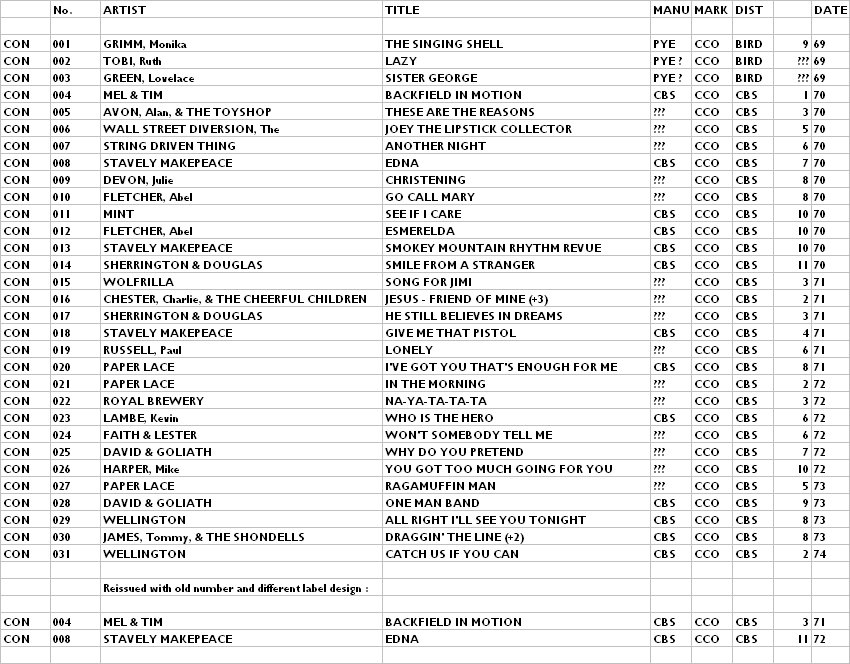


Copyright 2006 Robert Lyons.

